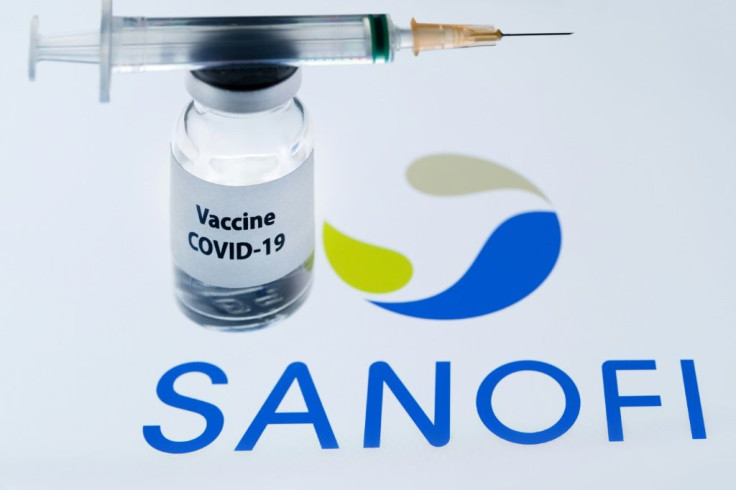Sanofi Looks To Restore Lost French Pride With New Vaccine
French pharmaceutical firm Sanofi announced the launch of human trials for a new Covid-19 vaccine on Friday as it looks to recover from early failures and restore dented French pride.
The pharmaceutical giant announced in December that its first vaccine candidate had proved disappointing in trials and would not be ready before the end of the year at the earliest.
This setback was followed by news that the other French hope -- a collaborative effort involving the renowned Pasteur Institute -- had been abandoned, leading to national soul-searching about the failures in a country that considers itself a leader on pharmaceutical technology.
Sanofi's new candidate is based on the innovative messenger RNA technology used in the Pfizer/BioNTech and Moderna vaccines which have already been authorised in the European Union, the United States and elsewhere.
"Initiating the Phase 1/2 trial represents an important step forward in our goal of bringing another effective vaccine to the ongoing fight against the Covid-19 pandemic," the head of Sanofi's vaccines unit, Thomas Triomphe, said in a statement.
The group has partnered with US-based biotech firm Translate Bio.
Their vaccine, if successful, would join what is fast becoming a crowded and highly competitive field.
Data from the World Health Organisation shows that there are 81 vaccines in clinical development already, including 10 based on RNA technology, while 182 are in pre-clinical development.
There are already 11 vaccines in use globally.
But with new variants of Covid-19 emerging, experts believe updated vaccines against the disease might need to be taken every year, creating a huge market even after the pandemic has subsided.

Sanofi, the third-biggest vaccine maker in the world before the new coronavirus struck, manufactures jabs against 11 illnesses including flu, yellow fever and tetanus.
The French media have raked over the reasons for France's failure to produce a Covid-19 vaccine in the last two months, blaming years of under-investment in innovation and a brain-drain of top researchers to other countries.
Poor leadership, power struggles and state intervention inside Sanofi have also been cited as reasons for the group's struggles, while its plans to cut jobs in R&D in France have stirred protests.
The Paris-based group has been reduced to helping produce vaccines for its rivals Pfizer and Johnson & Johnson, in a rare act of cooperation in an industry usually marked by cut-throat competition.
The head of Sanofi France, Olivier Bogillot, predicted in late January that Sanofi would end up with at least one vaccine among the 20-25 he expected to see in mass production worldwide.
"I find it irresponsible, ultimately, that some politicians who are there to support their national groups are bashing people. I've had enough of Sanofi-bashing," he told the LCI channel.
The group has continued development of its first vaccine candidate, which uses recombinant protein-based technology and is being researched in partnership with Britain's GSK.
It will be available in late 2021 if successful in trials, the group says.
France is the only permanent member of the UN Security Council not to have its own vaccine after successes for Britain, China, Russia and the United States.
In a further blow to national pride, a French-Austrian biotech group, Valneva, has a vaccine candidate in stage 1/2 clinical trials, but it has tied up with the British government to deliver 100 million doses.
France has a celebrated history of medical breakthroughs, including from Louis Pasteur, a pioneer in microbiology and the inventor of vaccines against rabies and anthrax.
© Copyright AFP 2024. All rights reserved.





















